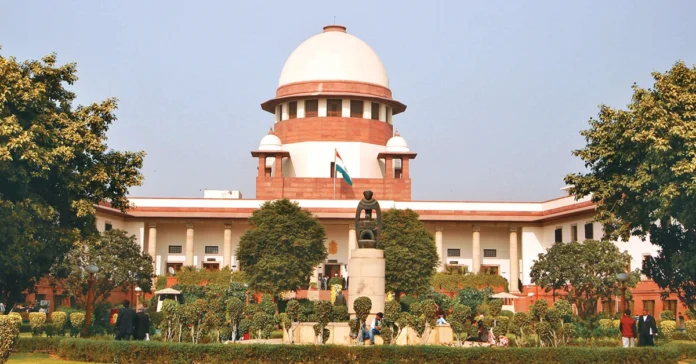The Union government has filed a petition in the Supreme Court seeking to transfer all pending challenges to the promotion and regulation of online gaming act, 2025 from various High Courts to the apex court. At present, cases questioning the validity of the new legislation are being heard in the Delhi, Karnataka and Madhya Pradesh High Courts.
The Centre has argued that since the issues raised in these matters are identical and touch upon questions of national importance, they should be adjudicated by the Supreme Court to avoid inconsistent decisions from different courts.
When the case was mentioned before a Bench led by Chief Justice BR Gavai, the government’s counsel stressed the urgency of the matter, noting that the Karnataka High Court is scheduled to hear interim applications related to the Act early next week. Acknowledging the submission, the Chief Justice agreed to list the Centre’s plea in the coming days.
The Online Gaming Act, 2025, which came into effect in August, is the country’s first central law aimed at regulating online games played for monetary stakes. The legislation imposes a complete ban on real-money gaming, including poker, rummy, fantasy sports and other betting platforms.
It also prescribes stringent penalties by making violations cognisable and non-bailable. The Bill was introduced in the Lok Sabha on 20 August, passed in both Houses within two days by voice vote, and received Presidential assent on 22 August, after which it immediately became law.
Supporters of the Act argue that it is necessary to curb gambling addiction, prevent financial exploitation of vulnerable players and bring order to an industry that has grown rapidly without adequate regulation. However, online gaming companies and industry associations have approached courts across the country, contending that the law violates fundamental rights. They argue that the Act infringes the freedom to practice a trade or profession under Article 19(1)(g) and the right to equality under Article 14.
Petitioners have also pointed out that the law does not distinguish between games of skill and games of chance, despite past Supreme Court rulings that have recognised skill-based games such as rummy and fantasy sports as legitimate. Another key contention is that gambling and betting fall under the State List of the Constitution, and therefore the Centre lacks legislative authority to impose a sweeping ban through Parliament.
The online gaming industry, which has been among the fastest-growing sectors of the digital economy, has also voiced concerns about the economic fallout of the law. Companies fear shutdowns or relocation abroad, job losses in technology and allied services, and a sharp decline in tax revenues. Industry leaders warn that rather than eliminating the practice, a blanket ban risks pushing online gaming underground, making it more difficult to regulate and protect players.
By seeking to consolidate the cases before the Supreme Court, the Centre has effectively set the stage for a decisive judicial examination of the law. The outcome will determine not only the constitutional validity of the ban but also the future direction of online gaming in India, balancing the concerns of consumer safety, industry growth and federal legislative boundaries.


